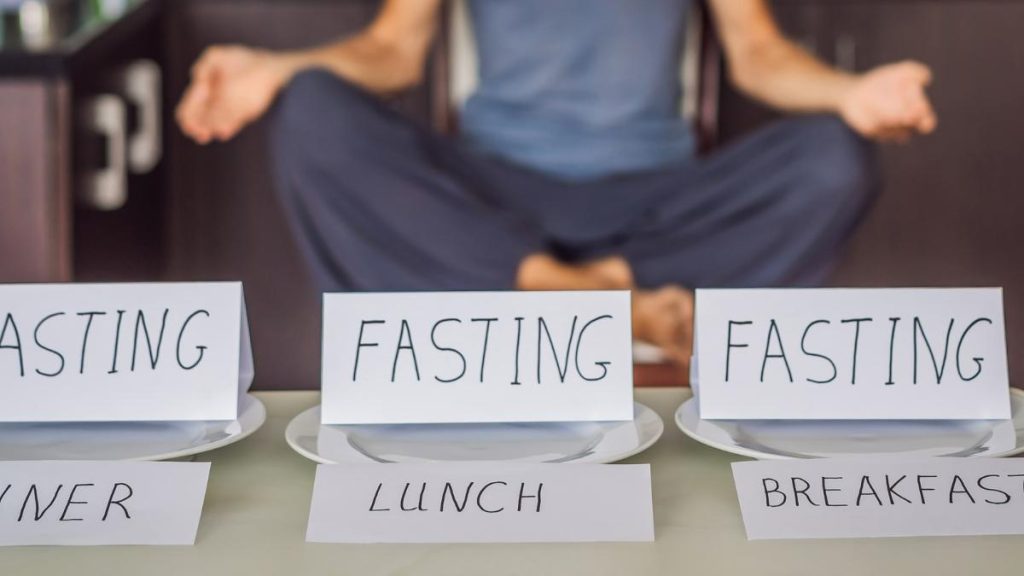When it comes to weight loss, many people believe that skipping a meal can accelerate the process. After all, eating fewer calories should result in quicker weight loss, right? However, the reality is more complex. While skipping a meal might seem simple to create a calorie deficit, it can have unintended consequences on your metabolism, energy levels, and overall health. In this article, we’ll explore the effects of skipping a meal on weight loss and why it might not be the best strategy for sustainable fat loss.
What Happens When You Skip a Meal?
Skipping a meal may create a short-term calorie deficit and trigger several physiological responses that can impact weight loss. Here’s what happens when you decide to forgo a meal:
- Slows Down Metabolism: Your body relies on a regular food intake to keep your metabolism running efficiently. When you skip meals, your body may enter a “starvation mode,” which conserves energy by slowing your metabolism. Over time, this can make it harder to burn calories, counterproductive to weight loss.
- Increased Hunger and Cravings: Skipping meals often leads to intense hunger later in the day, which can result in overeating or poor food choices. You’re more likely to crave high-calorie, sugary foods for a quick energy boost when you’re excessively hungry. This can lead to more calories than eating regular meals throughout the day.
- Loss of Muscle Mass: When you skip meals, especially if you’re skipping protein-rich meals, your body may break down muscle tissue for energy. Muscle mass is crucial for maintaining a high metabolic rate, and losing muscle can make it harder to burn fat and lose weight in the long run.
- Decreased Energy and Focus: Skipping meals can lead to low blood sugar levels, affecting energy and mental clarity. You might feel tired, irritable, and less motivated to exercise. This lack of energy can hinder your ability to stick to a workout routine, further slowing down your weight loss progress.
The Role of a Calorie Deficit in Weight Loss
Weight loss ultimately boils down to one fundamental principle: burning more calories than you consume. This is known as a calorie deficit. While skipping a meal may create a temporary deficit, it’s essential to understand that the quality of your calories and meal timing play a significant role in how your body responds.
- Satiety and Nutrients: Meals rich in nutrients, particularly fiber, protein, and healthy fats, help keep you full and satisfied. Skipping a nutrient-dense meal can leave you feeling hungrier later and make it harder to control portions or choose healthier options at the next meal.
- Non-Exercise Activity Thermogenesis (NEAT): Skipping meals can reduce your energy levels, making you less likely to engage in activities that increase your daily calorie burn, such as walking, standing, or moving around throughout the day. These activities, known as NEAT, can significantly impact your overall calorie expenditure.
How Skipping Meals Can Lead to Fat Retention
One of the most significant risks of skipping meals is its potential to cause your body to retain fat. When your body senses that food intake is irregular or insufficient, it may hold onto fat stores as a survival mechanism. Fat is a more efficient long-term energy source than carbohydrates or protein. As a result, even though you’re eating fewer calories, your body may prioritize preserving fat rather than burning it.
Skipping Meals vs. Intermittent Fasting
It’s important to distinguish between occasional meal skipping and intermittent fasting (IF), a structured eating pattern alternating between eating and fasting periods. While both approaches involve going without food for a certain period, intermittent fasting is more controlled and often has a set schedule. Research shows that IF can help some people lose weight. Still, it’s typically more successful because it includes specific eating windows and focuses on nutrient timing rather than randomly skipping meals.
- Intermittent Fasting Benefits: For some, IF can help improve insulin sensitivity, boost fat burning, and simplify meal planning. However, the success of IF still depends on overall calorie intake and food choices during eating periods. Unlike random meal skipping, which can lead to overeating, IF provides a framework to help avoid those pitfalls.
Does Skipping Meals Work for Weight Loss?
While it’s possible to lose weight by skipping meals, it’s not the most effective or sustainable method. Here’s why:
- Unhealthy Eating Patterns: Skipping meals can lead to eating disorders, such as binge eating or an unhealthy relationship with food. These patterns can sabotage long-term weight loss goals and may lead to weight gain.
- Nutrient Deficiencies: When you skip meals, you may miss out on essential nutrients, especially if you don’t make up for them in other meals. A well-balanced diet is critical for overall health, energy levels, and maintaining lean muscle mass.
- Stress on the Body: Skipping meals can elevate cortisol levels, the body’s stress hormone. Chronic stress has been linked to weight gain, particularly around the abdominal area, making it even more challenging to achieve your weight loss goals.
What’s a Better Approach to Weight Loss?
Instead of skipping meals, here are some more effective and sustainable strategies for losing weight:
- Eat Balanced Meals: Eat balanced meals with protein, healthy fats, and complex carbohydrates. This will keep you full and energized, helping to prevent overeating later in the day.
- Frequent, Smaller Meals: If you are getting hungry between meals, try eating smaller, more frequent meals throughout the day. This can help keep your metabolism active and prevent the intense hunger that leads to overeating.
- Increase Physical Activity: Regular exercise is a critical component of weight loss. Strength training, in particular, helps build muscle, which increases your metabolism and helps you burn more calories even at rest.
- Manage Portion Sizes: Being mindful of portion sizes is a great way to maintain a calorie deficit without skipping meals. You can enjoy the foods you love in moderation while still staying on track with your weight loss goals.
- Stay Hydrated: Sometimes, thirst is mistaken for hunger. Drinking water regularly throughout the day can help curb cravings and keep your energy levels up.
Conclusion
Skipping a meal might seem like a quick weight-loss fix, but the potential downsides outweigh the benefits. This strategy can do more harm than good in the long run, from slowing your metabolism to encouraging unhealthy eating patterns. Instead of skipping meals, focus on creating a sustainable calorie deficit through balanced nutrition, portion control, and regular physical activity. This approach will help you lose weight more effectively and promote better overall health and well-being.
Remember, weight loss is a marathon, not a sprint. Sustainable habits lead to lasting results.
Read Next…
- At What Age Can Someone Safely Start Bodybuilding?
- How to Use a Post-Workout Meal to Build Muscle and Improve Recovery
- Best Pre-Workout Meal for Muscle Building: What to Eat Before Training
- The Role of Diet in Building Muscle: How Much Does It Matter?
- How to Add Side Dishes to a Meal Plan for Weight Loss When Your Main Course Is Protein




